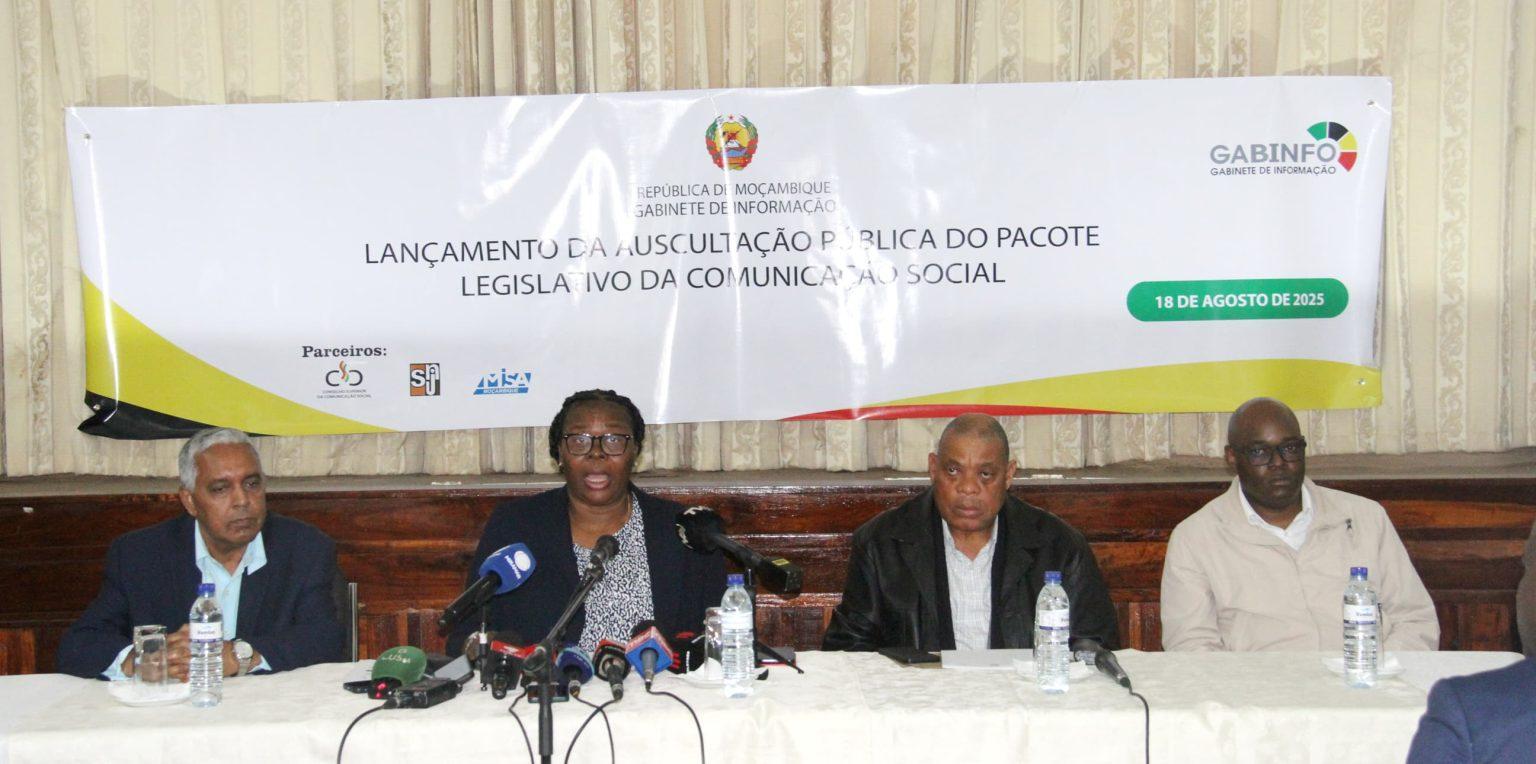Africa-Press – Mozambique. The Coordinating Council of the government Information Office (GABINFO) on Monday launched a public consultation on media and broadcasting laws in order to collect data supposedly for updating the way in which journalism is currently being practiced in Mozambique.
The initiative, which was launched in partnership with the constitutionally enshrined media watch dog, the Higher Mass Media Council (CSCS), the National Union of Journalists (SNJ) and the Mozambican chapter of the Media Institute of Southern Africa (MISA Mozambique), is also aimed at consolidating media and broadcasting laws, in order to adapt them to the reality and dynamics of today’s mass media.
There are two proposals, namely the Media Law, which aims to update the legal framework governing the sector, replacing the Press Law of 1991, and a more specific law governing broadcasting.
The Media Law, which supposedly aims at “strengthening the rights of media professionals and ensuring technical, impartial and transparent regulation of the media”, provides for the inclusion of new digital platforms and social media, which are not regulated under the current legal framework.
The 1991 press law, passed in the wake of the 1990 Constitution, which ditched the one party state and adopted political pluralism, was regarded as one of the most liberal pieces of media legislation anywhere in the world. It established the independence of the media, whether publicly or privately owned, and outlawed all forms of censorship.
By and large, journalists were happy with the 1991 law, and there was no grass roots movement to amend it.
One clearly retrograde step in the new draft laws is the introduction of a professional licence for journalists, a move which appears to have been taken from Portuguese media legislation. Press freedom organisations are generally opposed to licensing journalists, although the Mozambican journalists’ organisations favour this change in the belief that it will weed out charlatans from the profession. So far, nobody knows how a licensing system would work.
According to GABINFO director Emília Moiane, “The new Broadcasting Law is in line with recent developments, such as the digital migration of television requiring regulation of this area of broadcasting, establishing a clear legal framework for access to and exercise of broadcasting activities”.
Moiane also believes that the law will strengthen “respect for human dignity, ensuring that content promotes constructive values and encourages the production of educational and cultural programmes with a positive impact on the development of the media.”
“The bill represents an important step towards modernizing and consolidating the legal framework for media communication and will adapt the production and information process to the current technological developments in the country and worldwide”, she claimed.
The bills will be available until 20 September on the GABINFO website, linked to the websites of the institutions involved in the consultation process, so that “any Mozambican can access the proposals, comment on them and make any suggestions they deem necessary.”
From 1 to 15 September, the partner institutions in the consultation “will travel throughout the country to hold face-to-face seminars with media professionals and all those interested in the media industry to exchange views and gather their thoughts in face-to-face meetings.”
The public consultation process will end with a National Seminar to close the consultation, to be held in Maputo on 12 September.
For More News And Analysis About Mozambique Follow Africa-Press






